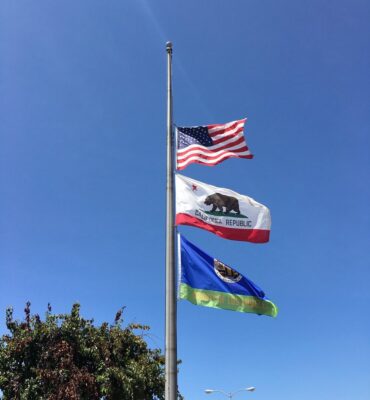By David Hegg
I rarely use this column to advance purely religious or theological ideals. And while this one may look religious, it is really all about ethics. It just so happens there is a particular ethical problem I’d like to discuss, and it has everything to do with the Bible. So, please keep reading.
Here’s my premise: If you don’t believe it, you can’t use it against those who do.
Today, many are using biblical material or principles as ammunition against those of us who order our lives around Scripture. And that would be fine if they believed the truth of what they were spouting. But it is a classic ethical breach when someone uses facts, beliefs and convictions to upend their opponents when they don’t believe those facts, beliefs and convictions are true for a minute.
Let me illustrate. Take miracles, for example. A miracle is defined as an occurrence that goes against natural law. Miracles occur when natural laws are either suspended or reversed. Exhibit “A” would be the resurrection of Jesus Christ from the dead. That is the granddaddy of all miracles.
But many today don’t believe miracles are possible. They refuse to accept the existence of the supernatural. So, if you don’t think miracles are possible, you don’t get to shout, “It’s a miracle,” when your team wins, you find the perfect parking space at the mall, or you reach a human being when you call the phone company. If you don’t believe the miraculous happens, you don’t get to say it does.
Here’s another. Lately, we Christ-followers have been sternly warned, “Judge not lest you be judged.” Here’s the deal. You don’t get to use this verse unless you can tell me where it is found (Matthew 7:1), the context (hypocrisy, not critique), who was saying it (Jesus), and the greater context of that verse (the Sermon on the Mount). Also, you’ll need to explain what Jesus meant when he said it. You don’t get to import your opinions into his sermons, especially if you don’t believe the Bible in the first place. You don’t get to use it if you don’t believe it!
Here’s another. It has been plastered all over the Internet that “Jesus never talked about homosexuality.” Those who promote same-sex activity and marriage don’t get to use this argument (which, by the way, is false and irresponsible) unless they are willing to say that whatever Jesus said is to be followed. If you don’t honor Jesus’ teaching where it is clear, you don’t get to use his supposed silence against those who do. To be ethically honest, you’d have to say, “If Jesus talked about it, I would follow what he said.” But unless you are trying diligently to follow the other things he said, including his direct teaching on marriage, you don’t get to use Jesus in your argument. If you don’t believe it, you can’t use it.
Lastly, I remember when 911 came, and the Twin Towers fell, and America suddenly realized we were no longer safe in our homes. For days after that ill-fated Tuesday, our church buildings were open and filled with those who felt driven to pray together. A large percentage of them hadn’t darkened the church door for years. Yet, in the moment’s uncertainty, they sought refuge in God. The same phenomenon occurred after the Saugus High School shooting. We welcomed scores of our neighbors with open arms, prayed with and for them, and tried hard to get them to see that their natural inclination to reach out to God signified something about the hole in their soul that nothing else could fill.
But again, I ask: If you don’t give God time when things are good, why run to him when things are bad? If you don’t think he has a part in your life today, why run to him when tragedy hits tomorrow? Why, when you scoff at Christianity, do you ask your Christian friends to pray for you when jobs are lost, cancer is found, or life’s chaos becomes overwhelming?
Don’t worry. We won’t tell anyone. And when you’re in trouble, we’ll still take you in, pray for you, care for you, and help you all we can, regardless of your lack of belief. We do it because we’ve found loving God and loving people is the best way to live, no matter what else is swirling around us.
Lastly, if you still want to say getting that parking place is a miracle, why not consider the possibility of true miracles? And if you’re going to understand what Jesus said about judging, why not take the time to read and study the Sermon on the Mount? And if you feel prayer can help in the tough times, maybe it’s time to find out why, and see if knowing God holds promise for you all the time? And if you do, let me know. I’ll meet you at the coffee shop and discuss it winsomely. I promise to listen to all you’ve got to say as long as you genuinely believe it and are willing to listen to what it really means.
Local resident David Hegg is senior pastor of Grace Baptist Church. “Ethically Speaking” appears Sundays.










